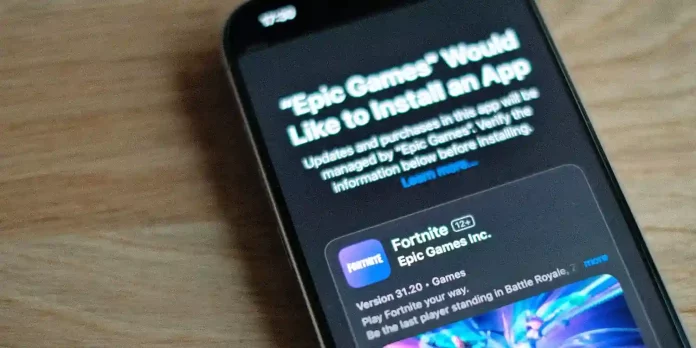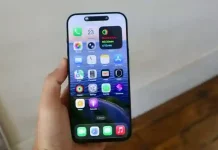Apple has fired back at Epic Games, accusing the company of trying to “free ride” on its platform as the Fortnite maker pushes for the right to sideload apps onto iPhones without paying any commission to the Cupertino tech giant.
The accusation came after an Australian court signaled it was likely to rule that Apple must allow sideloading on iPhones — though the exact terms of that ruling have yet to be finalized.
Background: The battle that started it all
Epic Games famously clashed with Apple after it introduced its own in-app payment system inside Fortnite, bypassing Apple’s 30% commission — a move that violated the App Store’s rules and got the game banned in 2020.
The dispute escalated into a major legal showdown in the U.S., where Apple largely prevailed. However, the judge ruled that Apple must let developers direct users to external payment systems. In response, Apple declared it would still collect commission on those transactions, sparking further legal fights.
Epic took Apple back to court, and the judge later accused Apple of misleading the court and violating the original order, even referring the matter for potential criminal investigation. Fortnite eventually returned to the U.S. App Store, quickly reclaiming its position as the top free game, though Apple vowed to continue its legal battles.
The Australian front
Epic also took the fight to Australia, where courts have largely ruled in its favor. Apple has described the decision as harmful, arguing it undermines the safety and privacy protections that define the iPhone ecosystem. The court has yet to finalize the remedies, with both sides now making their cases.
Epic is urging the judge to compel Apple to permit sideloading — that is, letting users install apps outside the App Store — without paying any fees to Apple.
Apple’s stance: “Epic wants a free ride”
Apple argues that Epic’s latest request directly contradicts the court’s findings, claiming it wants to dismantle the safeguards that protect iPhone users and developers.
According to Apple:
“Epic is now asking to free ride on Apple’s platform and dismantle every safeguard we’ve put in place to protect users and developers — a request that goes well beyond the Court’s ruling. We will continue to seek an outcome that respects our intellectual property and protects the safe, secure experience consumers and developers expect from our platform.”
Apple maintains that sideloading would weaken iPhone security, exposing users to privacy breaches, scams, and malware. It continues to defend the App Store’s commission model as essential to supporting infrastructure, innovation, and platform safety.
As the case progresses, the Australian decision could set a major precedent for global app store policies — a potential win for developers seeking more freedom, but a challenge to Apple’s tightly controlled ecosystem.





